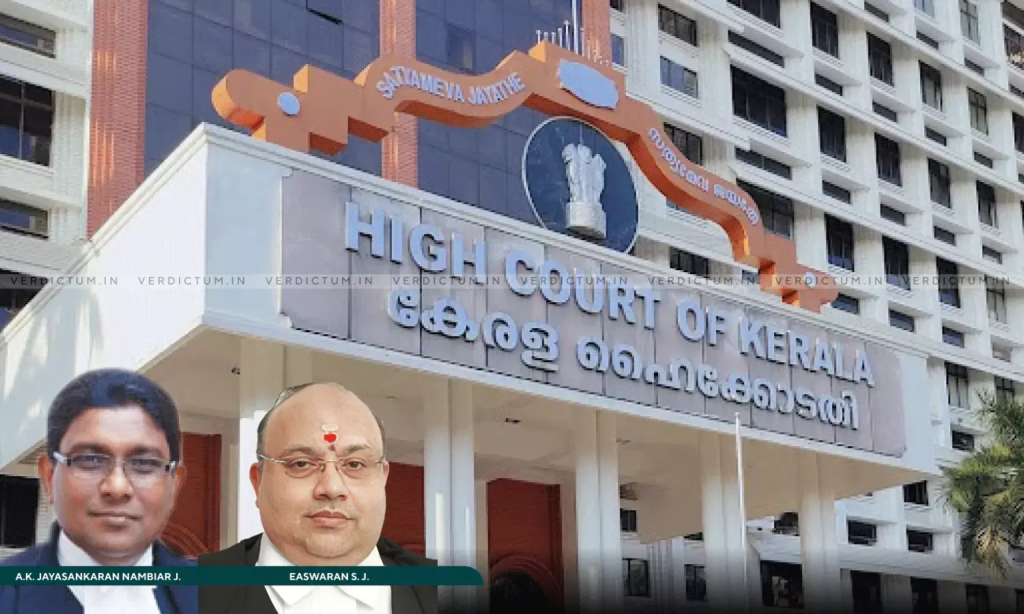Kerala High Court Rules Against Consolidated GST Show Cause Notices: What Businesses Need to Know

Updated on: Feb 25th, 2025| 3 min read
Introduction
The Kerala High Court has delivered a crucial judgment impacting businesses facing GST reassessment notices. The ruling states that consolidated GST show cause notices covering multiple financial years are legally invalid, as they may curtail the prescribed adjudication period.
This decision, in the case of Joint Commissioner (Intelligence & Enforcement) v. M/S. Lakshmi Mobile Accessories, reinforces the importance of statutory limitations under the Central Goods and Services Tax (CGST) Act, 2017.
Let’s break down the key aspects of this ruling, its legal implications, and what businesses should do if they receive a consolidated GST show cause notice.
Background of the Case
The dispute arose when the State GST Department issued a single show cause notice covering six financial years (2017-18 to 2023-24) to M/S. Lakshmi Mobile Accessories. The department alleged that the company had a suppressed turnover and demanded differential tax, interest, and penalties.
The assessee challenged this notice, arguing that the limitation period should be determined separately for each financial year, rather than being based on the earliest year mentioned in the notice.
The Kerala High Court upheld this argument and ruled that a single, consolidated notice cannot override statutory limitation periods set under Section 74 of the CGST Act.
Legal Context: Understanding Section 74 of CGST Act
Under Section 74 of the CGST Act, 2017, tax authorities can issue show cause notices when:
- GST has been short paid or not paid.
- Input Tax Credit (ITC) has been wrongly availed.
- Tax evasion is suspected.
Time Limit for Adjudication Under Section 74(10)
- The tax department must complete proceedings within five years from the due date of filing the annual return for the relevant financial year.
- If a consolidated show cause notice is issued covering multiple years, the earliest financial year’s limitation period applies to all subsequent years.
- This significantly reduces the time available for taxpayers to defend their case.
Why the Kerala HC Found Consolidated Notices Invalid
- The Court ruled that a consolidated notice unlawfully shortens the statutory period for each financial year.
- Each year’s tax liability must be assessed separately, ensuring businesses have adequate time to respond.
- Tax authorities cannot artificially restrict the time period by clubbing multiple years into one notice.
Key Findings of the Kerala High Court Ruling
1. Prejudice to the Assessee
A single show cause notice covering multiple years forces businesses to respond within a shorter time frame, violating natural justice principles.
2. Violation of Statutory Time Limits
The CGST Act provides a five-year limitation period per financial year, which cannot be bypassed by issuing a consolidated notice.
3. Tax Authorities Must Follow Proper Adjudication Procedures
The Court clarified that authorities must issue separate show cause notices for each financial year to comply with statutory provisions.
4. The State GST Department’s Appeal Was Dismissed
The Kerala HC rejected the department’s appeal, reaffirming that each financial year’s assessment must stand independently.
Implications of the Kerala HC Ruling on GST Show Cause Notices
This ruling sets an important precedent for businesses dealing with GST assessments and reassessments.
How This Ruling Helps Businesses:
✔ Prevents arbitrary reassessments based on clubbed financial years.
✔ Ensures fair adjudication by allowing each year’s tax liability to be assessed separately.
✔ Strengthens taxpayers’ rights to contest show cause notices that violate statutory timelines.
Best Practices for Businesses Facing GST Show Cause Notices
Given the Kerala High Court’s ruling, businesses must be proactive in handling GST compliance and tax notices.
1. Verify the Limitation Period in Any Show Cause Notice
- Ensure the notice follows the five-year adjudication period per financial year.
- If multiple years are clubbed into one notice, challenge its validity.
2. Maintain Detailed GST Records
- Keep track of GST filings, invoices, and ITC claims for each financial year.
- Proper documentation helps defend against arbitrary tax demands.
3. Seek Legal and Professional Advice
- Consult with tax experts or GST consultants to analyze any notice received.
- File timely responses to avoid interest and penalties.
4. File Appeals If Issued an Invalid Notice
- If you receive a consolidated show cause notice, refer to this Kerala HC ruling.
- Challenge it legally to ensure compliance with statutory provisions.
Final Thoughts: A Major Relief for Businesses
The Kerala High Court’s judgment ensures that businesses are not unfairly burdened by consolidated GST show cause notices that cut short the legally prescribed response time.
By reaffirming that each financial year’s assessment must be adjudicated separately, the Court has set a strong precedent that protects taxpayers from arbitrary reassessments.
Businesses must stay vigilant, track GST filings carefully, and challenge unlawful reassessment notices when necessary.
If you’ve received a consolidated GST show cause notice, consult a tax professional to explore legal remedies based on this ruling.
Let’s Connect!
Trusted By Your Favorite Brands






